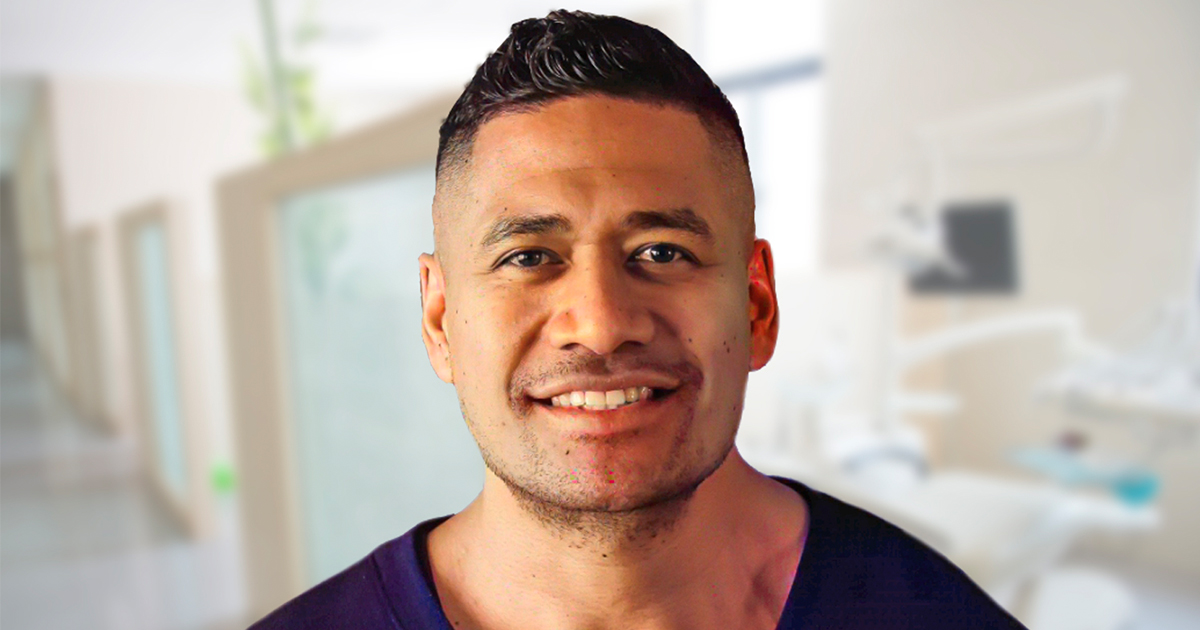
In the dynamic intersection of technology, culture, and healthcare, few individuals embody the spirit of innovation as profoundly as Dr. Kamea Aloha Lafontaine. A general dentist by training and an entrepreneur by nature, Dr. Lafontaine has made it his life's work to improve healthcare for Indigenous communities, a mission that is as personal as it is professional.
Born in Regina, Saskatchewan, as the fourth of five children, Dr. Lafontaine grew up in a household rich in cultural diversity. His father’s First Nations heritage from treaty 4 and Saulteaux, combined with his mother’s Polynesian roots, created a unique tapestry of traditions that shaped his worldview from an early age. “Growing up, I was taught about my Aboriginal heritage through my father. We spent a lot of time traveling to First Nations communities across Canada. Our family, known as Fifth Generation, was a performance group that put on variety shows as we traveled. I learned by watching,” Dr. Lafontaine reflects. This early immersion in his heritage not only grounded him in his identity but also instilled in him the importance of giving back to his community.
Dr. Lafontaine’s journey to dentistry was inspired by his mother’s unwavering belief in the transformative power of education. A woman of remarkable resilience, she migrated to North America from a small island in the South Pacific, overcoming numerous obstacles along the way. “She was the first of 13 children to leave the islands,” Dr. Lafontaine recalls. “When she finally moved to Canada and had her five children, she knew that she could change our lives through education.” This profound influence led Dr. Lafontaine to pursue a career in dentistry, fulfilling his mother’s vision of the power of education by raising a doctor, a lawyer, a dentist, a builder and a microbiologist/hula dancer.
Once he earned his Doctorate of Dental Medicine (DMD) from the University of Saskatchewan, Dr. Lafontaine found that his ambitions extended beyond a standard dental practice. His interest in technology and an entrepreneurial spirit led him to co-found SafeSpace Networks, a groundbreaking initiative aimed at enhancing the healthcare experience for Indigenous people. The idea for SafeSpace was born from a deeply personal encounter with systemic racism in a hospital emergency room, where Dr. Lafontaine experienced firsthand the indignities that Indigenous patients often face in healthcare settings. Determined to create a platform that would amplify Indigenous voices, he and his brother, Dr. Alika Lafontaine, an anesthesiologist, developed the SafeSpace app. This innovative tool allows Indigenous patients to report racist encounters in healthcare using pseudonyms, providing a safe space for airing grievances without fear of retribution.
For Dr. Lafontaine, SafeSpace is not just an app but a symbol of hope and change. “There needs to be a place where these concerns can be aired with as little risk as possible to both the patient and the system,” he explains. “SafeSpace fosters open dialogue, bridging the gap between patients and healthcare providers to promote mutual understanding and respect. While we had many anecdotal stories, we recognized the need for data to truly drive change.”
Beyond his work with SafeSpace, Dr. Lafontaine’s commitment to community and culture is evident in his role as a co-founder of Intelli Network, an Indigenous software development firm. At Intelli Network, Dr. Lafontaine and his team are dedicated to creating cutting-edge digital solutions that drive innovation and growth for businesses across various industries. Their work is grounded in a deep commitment to community values, ensuring that technology positively impacts the lives of Indigenous peoples.
He also collaborated with Dr. Sheri McKinstry to create an animated series about an indigenous girl who grows up to be a dentist. This initiative was supported by elders and was aimed at recruiting indigenous children into the profession.
Recently, Dr. Lafontaine’s expertise and passion for improving the dental industry in Canada led him to join the CDSPI Advisory Panel. Reflecting on his experience, he describes it as “refreshing to meet with a room full of successful independent thinking professionals to discuss how to better serve the dental industry in Canada.” His participation on this panel underscores his influence in the field and his dedication to shaping the future of dental care in Canada.
As Dr. Lafontaine continues to break new ground in the intersection of technology, culture, and healthcare, his ambitions remain as expansive as ever. “Now that we’re in the age of AI I’m in Candyland. I love technology supporting what we do. We’re seeing it every day—and AI is revolutionizing how we interact with patients. Now we can show them a photo of new teeth, a new smile. It’s an incredible, all-encompassing technology but it will always be AI that is augmented by the human connection.
He envisions a future where first-class health and dental care, as well as education, are accessible to every First Nation person and Polynesian Tribe member worldwide. While the path to achieving this goal is still being paved, Dr. Lafontaine’s unwavering commitment to his heritage and his community is a testament to the power of living one's beliefs.
Today, more than ever, there's no reason to assume that the demands on your time—whether it's things you want to do or feel obligated to do—will match the time you actually have available. But somehow, Dr. Lafontaine has managed to fit it all in while simultaneously raising four children with his wife, Sanna from their home in Calgary where he recently purchased his fourth practice.
In a world driven by technology, Dr. Kamea Aloha Lafontaine demonstrates how cultural values can guide innovation, ensuring that progress benefits the communities it serves. His work highlights the importance of respecting those impacted by technological advancements.